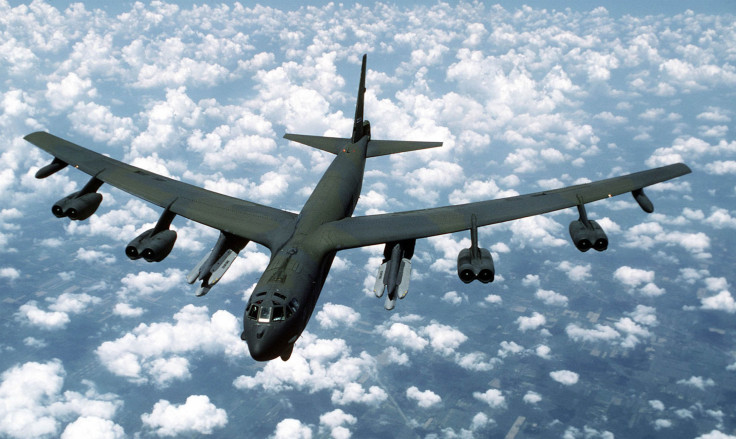South China Sea Controversy: US B-52 Bomber Jets Fly Near Disputed Islands

The Pacific Air Forces confirmed that two B-52 bombers flew over the South China Sea on Tuesday, near some of the islands claimed by multiple countries, including China, according to a CNN report.
Although the Pentagon did not reveal over which islands the two B-52H Stratofortress bombers flew over, the statement from Pacific Air Forces said the aircraft "participated in a routine training mission in the vicinity of the South China Sea," as part of US Indo-Pacific Command's "Continuous Bomber Presence operations.”
Report of the bombers flying over the South China Sea came after news of China's Defense Minister Wei Fenghe agreeing to meet with U.S. Secretary of Defense James Mattis – a meeting that was canceled following the White House implementing sanctions against Beijing.
Tuesday’s mission was "consistent with international law and United States' long-standing commitment to a free and open Indo-Pacific,” the Pacific Air Forces said.
US Assistant Secretary of Defense for Asian and Pacific Security Affairs Randall Schriver said: “Chinese have successfully militarized some of these outposts and their behaviors become more assertive and we're trying to have an appropriate response.”
Earlier this month, a Chinese destroyer Lanzhou came within 45 yards of the USS Decatur while the latter was sailing within 22 kilometers (12 nautical miles) of the Gaven and Johnson Reefs in the Spratly Islands, which have been claimed by China – an encounter that was dubbed “unsafe” by U.S. Pacific Fleet spokesman Lt. Cmdr. Tim Gorman.
While China’s defense ministry said its naval ship was sent to warn the U.S. counterpart, Gorman said the former vessel “conducted a series of increasingly aggressive maneuvers accompanied by warnings for Decatur to depart the area.”
Days after the encounter, Vice President Mike Pence delivered a scathing speech, warning Beijing against carrying out aggressive tactics in the South China Sea.
“Despite such reckless harassment, the United States navy will continue to fly, sail and operate wherever international law allows and our national interests demand. We will not be intimidated. We will not stand down,” he said.
He added: “While China’s leader stood in the Rose Garden of the White House in 2015 and said that his country had ‘no intention to militarize the South China Sea’, today, Beijing has deployed advanced anti-ship and anti-air missiles atop an archipelago of military bases constructed on artificial islands.”
A separate CNN report revealed that the U.S. Navy's Pacific Fleet had drawn up a classified proposal to carry out a series of operations — involving warships, combat aircraft and troops — in the South China Sea during a single week in November.
While such missions, which stretch out over a year, are not uncommon for the U.S. military, conducting several such operations within the brief span of a week is meant to warn China and to demonstrate how prepared the U.S. is to counter potential adversaries on several fronts in a short period of time.
© Copyright IBTimes 2025. All rights reserved.






















